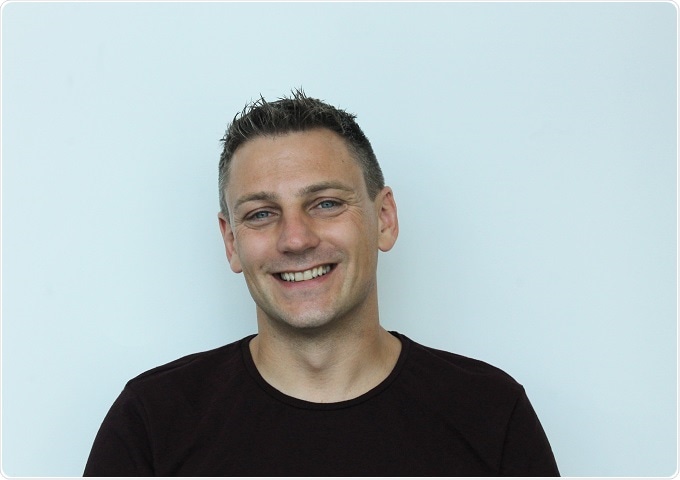Oct 3 2017
Unitive Design & Analysis Ltd, a London-based SME, announced today their success in being awarded an Innovate UK grant to develop a commercial roadmap for a Quantum Technology- based brain imaging system.
“We are so excited about this project because it will help to demonstrate how Quantum Technologies can increasingly impact MedTech and Medical Imaging”, Dr Philip Marsden, Unitive Design’s Founder and Managing Director (below) explained.

“The extraordinary research which Dr Matt Brookes and his team are pioneering at the world- class Sir Peter Mansfield Imaging Centre at the University of Nottingham is central to this project, and we are also delighted to be working with Inspired Usability, a company with experience in the science of Human Factors and ergonomics, and expertise in navigating the standards requirements for medical device development.
Unitive Design and the University of Nottingham are keen to follow in the prestigious footsteps of Professor Sir Peter Mansfield, the Nobel laureate, who was the pivotal force in driving MRI from the lab to the clinic, and they see MEG (Magnetoencephalography) as a future critical element in widespread brain research and diagnosis through its non-invasive imaging of brain function.
This project brings together Unitive Design’s commercial, product engineering and regulatory expertise in medical technology with the University of Nottingham’s ground-breaking application of optically pumped magnetometers in MEG, to create a roadmap for moving this emerging technology into the commercial world.
We are incredibly grateful to Innovate UK, the UK’s Innovation Agency, and cannot stress enough how much this type of support is needed and appreciated by SMEs. This new technological advance, based on quantum technology, has the potential to develop into a significantly lower cost MEG instrument, with vastly improved sensitivity and spatial resolution. Moreover the technology is lightweight, transforming cumbersome brain scanners into a wearable helmet. This opens up myriad applications across neuroscience and mental health, particularly in scanning infants. We hope this technology will be widely deployed in the UK, and across the globe, having a direct impact on brain research and diagnostics for diseases of the brain and mental health”.
Dr Philip Marsden, Founder and Managing Director of UDA
Phil set up Unitive Design after years of frustration at seeing examples of great academic research not realising their true value in the commercial world, “I encourage more SMEs to work with universities, who are keen to set up new relationships with industry, and I’d encourage universities to make it even easier for small companies to connect with them.”
Unitive Design & Analysis will continue to build a strong and fruitful relationship with the University of Nottingham, and to bring more innovative medical technologies to the people who need them.
Source: Unitive Design & Analysis